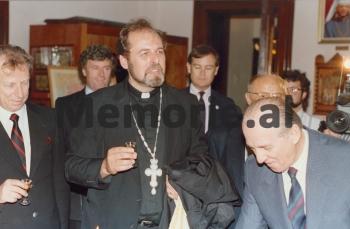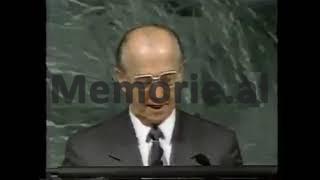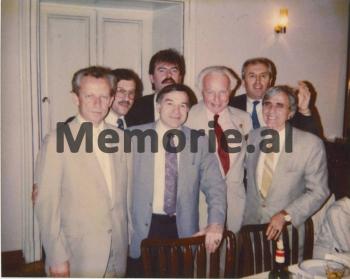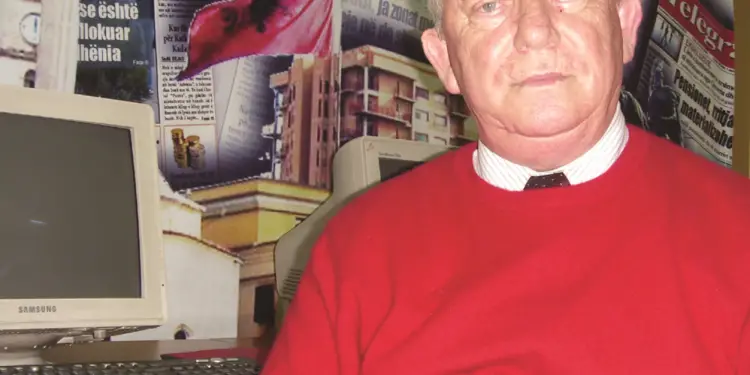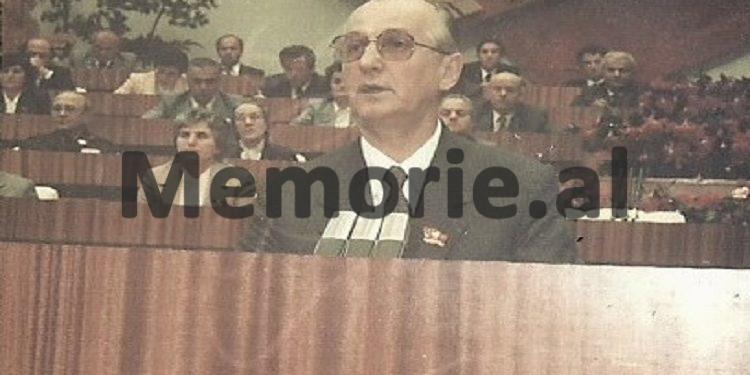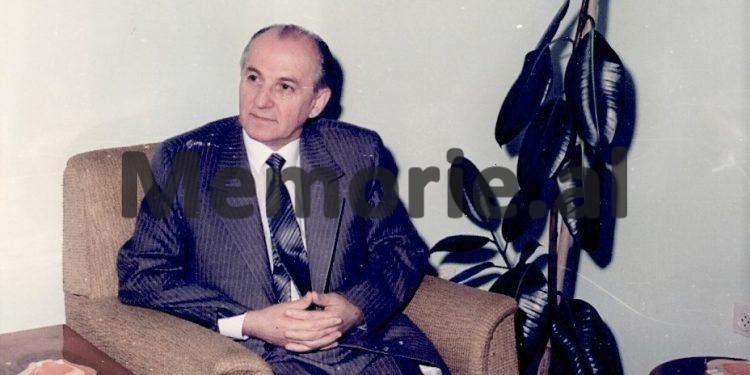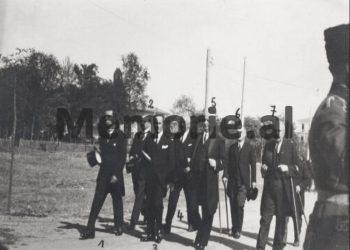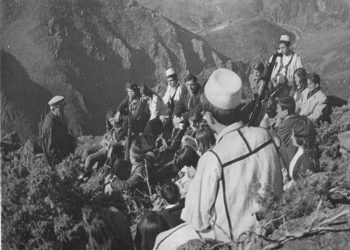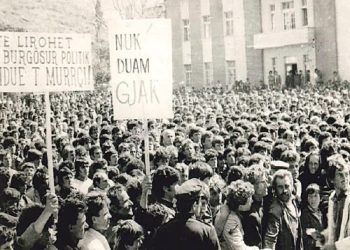Memorie.al / The leadership of Albania, with one of the last communist governments with the toughest line, has completed the series of talks with the United States, to establish diplomatic relations, after a 51-year break. Such a fact was stated today by the head of the Albanian delegation to the United Nations. “We shook hands”, said Bashkim Pitarka. “We are ready and we are waiting for the answer. We are awaiting final approval from the President of the United States of America. We are ready to start tomorrow”, Ambassador Pitarka declared.
His stance comes as the President of Albania, Ramiz Alia, appeared today in his speech before the General Assembly of the United Nations, where he called for an end to his country’s self-isolation.
A State Department spokesman said the establishment of diplomatic relations shows promising signs, although it could take several weeks before they are approved.
The United States has been willing to establish diplomatic relations with Albania for several years. However, the offer was rejected until this year, when Albania was ending its isolation, as a result of the collapse of communism, everywhere in Eastern Europe.
Terms, fixed in 1945
Officially, the United States severed relations with Albania in June 1939, after the invasion and occupation of the country by Italy. In 1945, the United States made the resumption of diplomatic relations conditional on free elections and recognition of pre-war agreements.
They sent a mission to Tirana that year to follow up on the problem. But in 1946, according to the State Department, the new communist government demanded the mission be closed. Last April, President Alia told the Central Committee of the Communist Party that he was ready to establish diplomatic ties with the United States and the Soviet Union.
Diplomatic relations with the Soviet Union were severed 30 years ago, when Albania sided with Mao Zedong against Nikita Khrushchev, which were closed in July of that year.
“Talks between officials of the Department of State and Albania, started in New York and Washington, after the announcement in April”, said Pitarka.
He said that “his country is satisfied with the results of the talks”. Pitarka said that the United States has not set conditions for the resumption of diplomatic relations.
President Alia came to power in 1985, after the death of Enver Hoxha, who ruled Albania for four decades in a row. “He has moved slowly towards changing the authoritarian policies in the country”, – say American officials.
In his speech before the General Assembly today, President Alia said that; “Albania hopes to become a participant in the meeting of the ‘East-West Summit’, which will be held in Paris in November and will welcome the establishment of close relations with its European neighbors”.
He said that his country wants to cooperate with the Conference on Security and Cooperation in Europe, consisting of 35 European countries, the USA and Canada.
Mr. Alia said that the goals of eliminating “the division of Europe within blocs and spheres of influence” require sincere support for his country.
Tamper alert
But, while the Albanian leader seems ready to build bridges of cooperation with other countries, he has warned against interference in Albania’s internal affairs.
“Arrogance, inspired by strong politics,” he said, “which has been reflected in the continuation of efforts for different models, standards and schemes of political and social and other developments, have not yet been overcome.”
Mr. Pitarka said again that; “The president did not imply that Albania is not changing. We must go towards sound democratic processes”, he said.
Albania, which has a current population of 3.3 million, declared independence in 1912, after more than four centuries of rule, from Turkey.
Albanian demonstrators outside the headquarters of the United Nations, who had gathered to protest against the speech of President Ramiz Alia (ed.), clashed at midnight with their compatriots, who had come to support and cheer for the Albanian president.
Police, who made no arrests, closed the entrance to the United Nations headquarters for half an hour after the incident. Memorie.al
The article was published in the “New York Times”, on September 29, 1990
The title is editorial
Prepared for publication, Albert Gjoka




